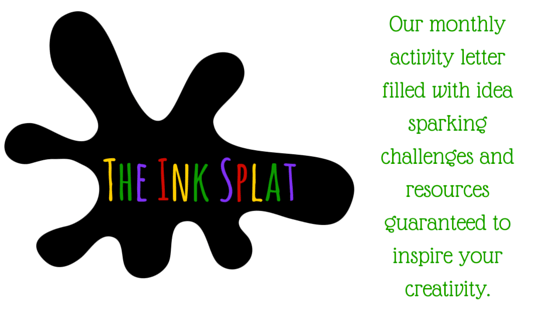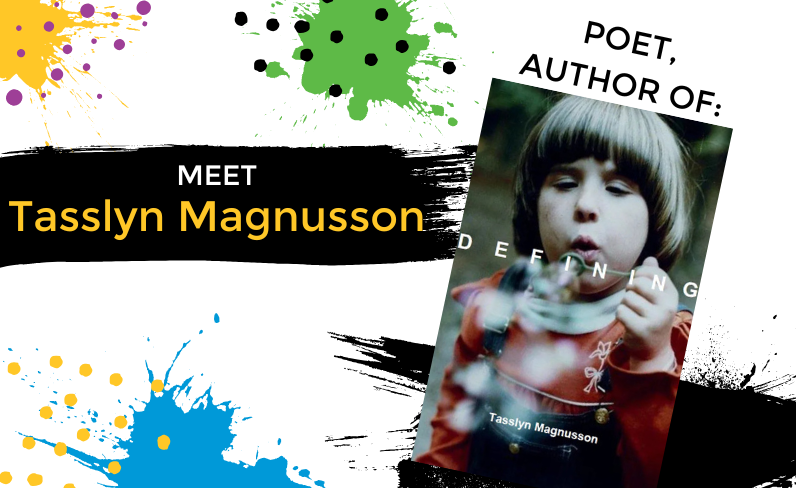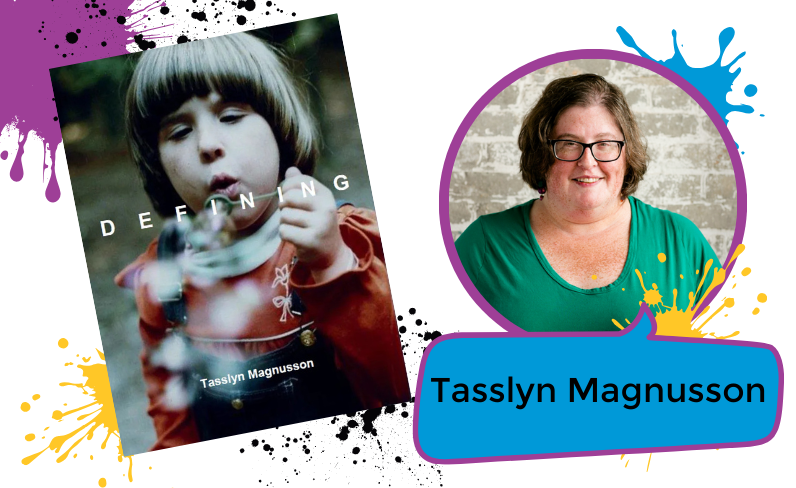This month’s Ink Splat Author Interview features Tasslyn Magnusson—poet and Inklings mentor extraordinaire.
In our conversation, Tasslyn shares how she stumbled into poetry (and fell in love with it!), the special role of chapbooks in a poet’s journey, why “sticking the landing” matters when finishing a poem, and how breaking the rules might just be the most poet-like thing you can do.
You can learn more about Tasslyn and her work here: tasslynmagnusson.

Writing Challenge
Walking With Your Poet-Self
In her interview, Tasslyn encourages us to remember that our “poet-selves are always collecting.”
Try this: Go for a walk with a tiny notebook in your pocket. Keep your poet’s eyes open. What draws your eyes, your ears, your nose? Capture ideas, sensations, images, as you go, jotting words down in your notebook. Are cloud-ships sailing across the sky? Did that tree just tuck a secret behind your ear? Maybe the rain-soaked pavement smells like forgiveness after a long-held fued.
After your walk, choose one of your lines and see what it might like to become. Might it be the key to unlock a poem? Is it an opening line? A closing line? A refrain? A title?
Play with the possibilities and if you end up with a poem you’d like to share, we hope you’ll share! Did you know that as an Inklings member, you can submit your creative writing on our Inkwell app to share with an audience of enthusiastic readers? You can ask for revision feedback on a work in progress, or submit a finished piece and hear back from readers about what they loved.
Join us and share your writing on the Inkwell!

Q: You mentioned you never meant to be a poet. How did poetry find you?
A: “Gosh, I never meant to be a poet. It was all very accidental—but it turned out to be correct and right and perfect. I think that’s always important to say up front. But I love poetry, so I’m excited to talk about it.”
Q: Many Inklings wonder how to publish their poems. Can you tell us about your chapbook and what makes chapbooks special?
A: “Chapbooks are like little, itty-bitty booklets of poems… not a full book, but a complete and whole entity. For me, it was the perfect size. I didn’t have to ‘fill out’ more poems—it fit what I needed. It’s also a great way to test-run an idea, and often easier to publish than a full-length collection.”
Q: How do you know when a poem is finished?
A: “It’s not like you count lines or rhyme perfectly. It’s more like when you watch gymnastics and the announcer says, ‘She stuck the landing.’ When I read a poem out loud and feel that breath at the end—like it’s a whole idea or image—that’s when I know it’s complete.”
Q: What advice would you give to someone who wants to try poetry but isn’t sure if they’re ‘allowed’ to be a poet?
A: “Everybody can be a poet. Poetry is really about playing on the page. Learn the rules so you can break them. Be like Emily Dickinson—sometimes she just stopped rhyming because she wanted to mess with you! Part of being a poet is giving yourself permission to play with words and see what happens.”
Q: How do you make poetry playful, especially when writing about serious topics?
A: “Even though I write about very serious things, I don’t need to be serious about poetry. Reading poems out loud, noticing cool sounds, trying little prompts—it all helps. And even if you’re just looking at the trees or listening to birds, you’re working on your poetry. Your poet-self is always collecting.”



